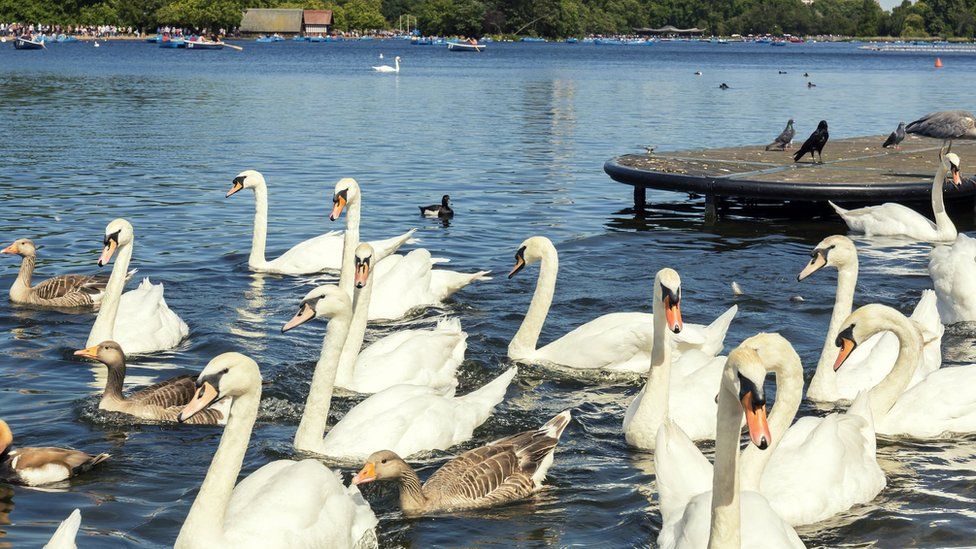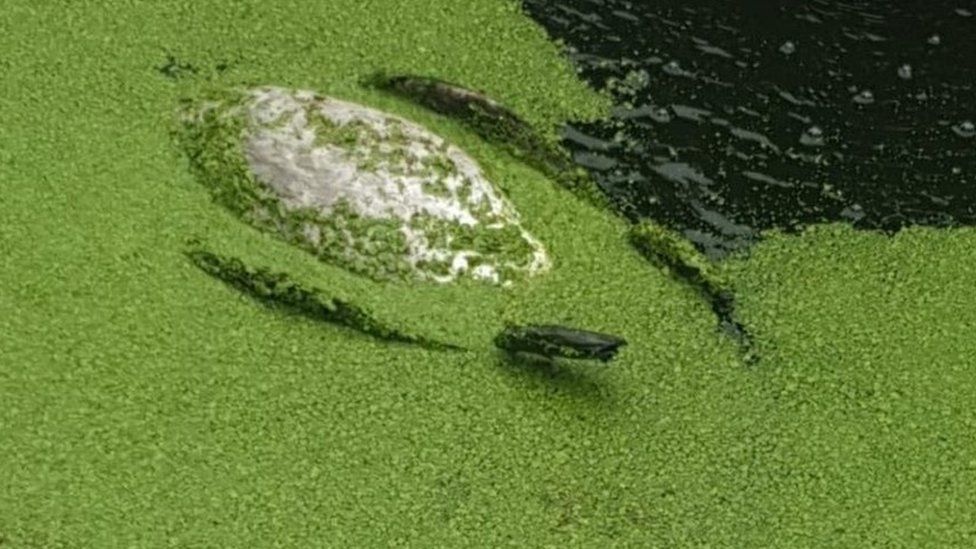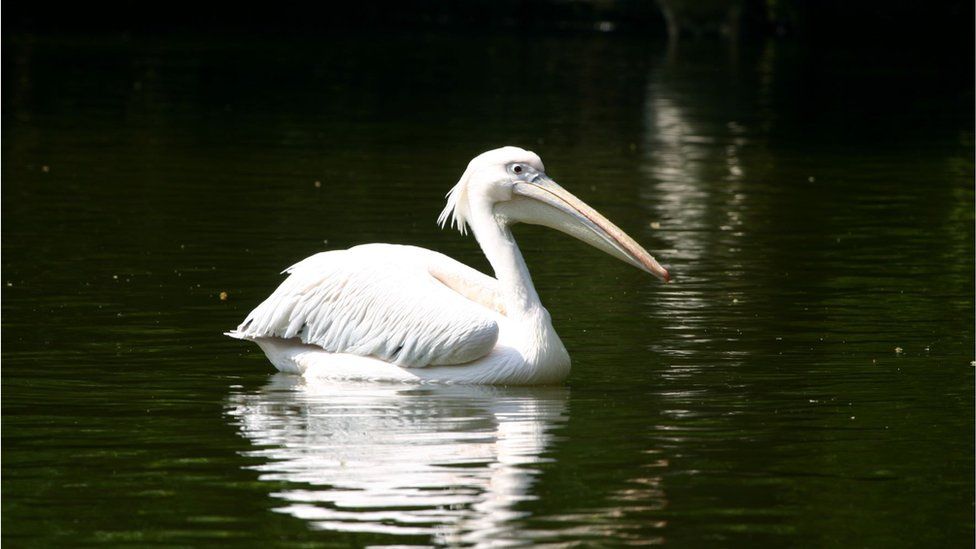
More than 30 birds have died at two central London parks amid a growing outbreak of avian flu.
The birds were found dead at Hyde Park and Kensington Palace over the last fortnight, Royal Parks said.
The body said it was "very concerned" about its "largest ever" outbreak, which has seen 48 million birds culled across the UK and EU in the last year.
Several other suspected cases of bird flu deaths have also been reported across London in recent weeks.
Royal Parks said it has asked Defra, the government department managing the outbreak, to test the carcasses.
A spokesperson said: "In two of the spaces we manage, Hyde Park and Kensington Gardens, we believe that some birds have possibly contracted and died from avian influenza.
"We are unable to prevent wild birds from getting the virus, but we are carrying out enhanced monitoring of our waterbodies to check for signs of illness and to ensure that any dead birds are removed immediately. "
The body, which also manages spaces such as Regent's Park, Greenwich Park and Bushy Park, said it had installed signage asking people not to feed birds, to avoid spreading the virus.

However, Defra said the risk of the virus transferring to humans is low.
So far, 113 captive birds are confirmed to have died from the H5N1 strain of avian flu in the current outbreak in England, since the start of October, according to Defra.
The figure is almost as high as the number of deaths recorded over the last 12-month period, it said.
The number of wild birds affected is believed to be much larger.
As you may have seen in the national news, Avian Influenza (bird flu) is having a devastating impact on wild bird populations across the UK. (1/4)https://t.co/9j2Osbfdnn#BirdFlu #AvianFlu #AvianInfluenza pic.twitter.com/7mp4BKQZ8K
— London Wildlife Trust (@WildLondon) November 16, 2022
Some birds who recently died in Epping Forest are among those confirmed to have contracted avian flu.
The Tower of London's famed resident ravens and St James's Park's pelicans have also been forced into enclosures by the outbreak, due to government rules requiring farmed birds to be kept indoors.

In October, about a dozen dead swans and geese were found in canals near Little Venice in north London, prompting fears they had died from the virus.
The Canal and River Trust, which looks after London's inland waterways told the BBC it has since received "several" reports of suspected bird flu deaths.
The London Wildlife Trust said it was also treating recent bird deaths and sickness at Walthamstow Wetlands with "caution".
The trust, which manages nature reserves across London said it believed the effect of the outbreak on local populations of greylag and Canada geese, mute swans, grey herons, black-headed gulls and moorhens was "widespread".
Defra is asking people to report suspected case of bird flu to its hotline, on 03459 33 55 77.

Follow BBC London on Facebook, Twitter and Instagram. Send your story ideas to hellobbclondon@bbc.co.uk
Related Internet Links
"bird" - Google News
November 18, 2022 at 01:24PM
https://ift.tt/ACN9Ohm
Bird flu: More than 30 birds found dead in London's Royal Parks - BBC
"bird" - Google News
https://ift.tt/1ehiyIj
https://ift.tt/HT9JN7G
Bagikan Berita Ini















0 Response to "Bird flu: More than 30 birds found dead in London's Royal Parks - BBC"
Post a Comment